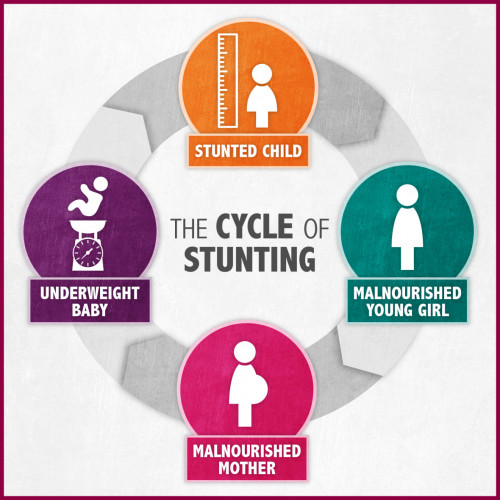Anemia, miscarriage, and infant mortality are three complex health issues that are often closely related. These conditions can have serious implications for the well-being of both mothers and infants, requiring specific attention from a public health perspective. This article will elucidate the relationship between anemia, miscarriage, and infant mortality, providing insights into the importance of proper prevention and management.
Anemia in the Context of Reproductive Health
Anemia is a medical condition caused by a low level of hemoglobin in the blood. This condition can result in a decreased capacity of the blood to carry oxygen throughout the body, which can have serious implications for the health of both the mother and the fetus during pregnancy. Pregnant women tend to be more susceptible to anemia as they require more iron to support fetal growth.
Pregnancy Loss and Its Impact on Maternal Health
Miscarriage is the loss of a fetus before reaching 20 weeks of gestation. In addition to the profound emotional trauma, miscarriage can also lead to physical health issues, including an increased risk of anemia. Blood loss during a miscarriage can lead to a reduction in hemoglobin levels, exacerbating an existing condition of anemia or even initiating its development.
The Relationship Between Anemia and Infant Mortality
Infant mortality is one of the greatest tragedies a family can experience. Research has shown that mothers with low hemoglobin levels have a higher risk of experiencing complications during pregnancy and childbirth, which can affect the health of the infant. Babies born to mothers with anemia often have low birth weights, which is a major risk factor for infant mortality.
Proper Prevention and Management
Preventing anemia in pregnant women through a balanced diet and iron supplements is a crucial step in minimizing the risk of miscarriage and infant mortality. Regular check-ups and careful prenatal care are also essential for early detection and management of anemia such as doing Hemoglobin screening:
Hemoglobin screening plays a crucial role in monitoring the effectiveness of anemia treatment. Regular screenings enable healthcare providers to track hemoglobin levels over time and evaluate the response to interventions. This ensures that the chosen treatment approach is effective and can be adjusted if necessary.
Moreover, hemoglobin screening is not only vital for diagnosing and treating anemia but also for preventive measures. By identifying individuals at risk of developing anemia, such as pregnant women, young children, or those with specific chronic conditions, healthcare providers can implement preventive strategies. These may include dietary recommendations, iron supplementation, or lifestyle modifications to enhance overall health and prevent anemia from occurring.
Furthermore, hemoglobin screening provides valuable data for population health monitoring. By analyzing the prevalence and distribution of anemia within a specific population, policymakers and healthcare organizations can develop targeted interventions and allocate resources effectively. This information guides public health strategies to address the underlying causes of anemia, improve access to healthcare, and promote overall well-being.
PT Isotekindo Intertama offers a practical and convenient Point Of Care Test (POCT) tool for checking hemoglobin levels in the blood. This tool requires only a small sample of 1µL, making it easy to use. It utilizes the HemoSmart GOLD Hemoglobin Screening Meter, which is the first biosensor technology for screening hemoglobin in Indonesia.
The HemoSmart GOLD Hemoglobin Screening Meter offers the following features and benefits:
-
Small sample size: Requiring only 1µL of blood, the HemoSmart GOLD Hemoglobin Screening Meter minimizes the amount needed for testing.
-
Wide measuring range: With a range of 4.0-24.0 g/dL, it allows HemoSmart GOLD Hemoglobin Screening Meter for easy monitoring of hemoglobin levels in both low and high conditions.
-
Quick results: Providing results in just 5 seconds, its fast reading time enhances efficiency and saves time.
-
Accurate profile: By utilizing a small sample volume of 1µL whole blood and analyzing whole blood cells, the HemoSmart GOLD Hemoglobin Screening Meter delivers an accurate profile of hemoglobin levels in the blood. This ensures reliable results without causing excessive pain during blood test sampling.
The HemoSmart GOLD Hemoglobin Screening Meter offers a practical solution for hemoglobin level testing, with its small sample requirement, wide measuring range, quick results, and accuracy.
Anemia, miscarriage, and infant mortality are serious health issues that are interrelated. A deep understanding of the relationship between them is crucial for improving the health of both mothers and infants. Through prevention, early detection, and appropriate care, we can minimize risks and provide better support for those affected.
References
- American Pregnancy Association. (2021). Pregnancy Complications. https://americanpregnancy.org/pregnancy-complications/
- Insert Kit HemoSmart GOLD Hemoglobin Screening Meter
- March of Dimes. (2021). Low Birthweight. https://www.marchofdimes.org/complications/low-birthweight.aspx
- World Health Organization. (2021). Anemia. https://www.who.int/en/news-room/fact-sheets/detail/anemia







